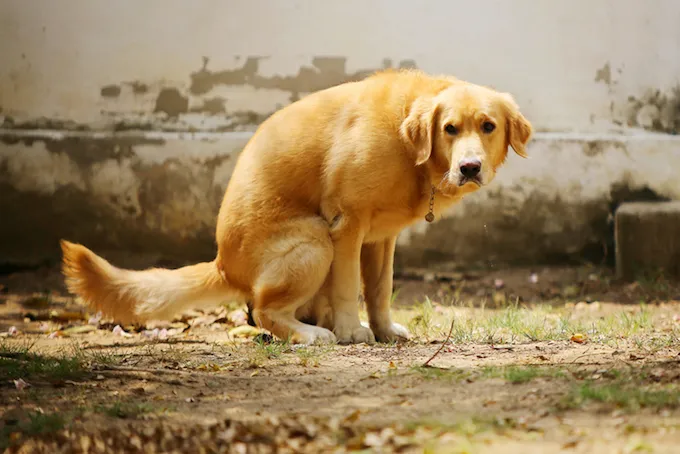Intestinal disorder (loss of motility) in dogs causes problems with pooping. Specifically, a dog finds it hard to poop or goes irregularly.
Additionally, the condition can cause abdominal pain and vomiting.
Usually, the cause of the condition is some sort of obstruction.
Technically, the condition is also called ileus in dogs.
If you see the signs of the condition in your dog, then get to a veterinarian for a proper diagnosis and treatment.
Here’s what you should know about the symptoms, causes, and treatments for the condition.
Symptoms of Intestinal Disorder (Loss of Motility) in Dogs
The condition produces a number of symptoms. For example, some of the most common symptoms include:
- Vomiting
- Constipation
- Stomach pain
- Anorexia
- Depression
- Loss of appetite
Causes of Intestinal Disorder (Loss of Motility) in Dogs

The cause of the condition can be a wide range of things. For instance, some of the common causes include:
- Electrolyte problems
- Infections
- Lack of water
- Stomach injuries
- Foreign bodies
- Poisons
- Surgeries
- Shock
- Tumors
Additionally, in some cases the condition is idiopathic. This means the cause is unknown.
Treatments for the Condition in Dogs
Firstly, your vet will ask about your dog’s symptoms. Secondly, your vet will ask about your dog’s full medical history.
Thirdly, a full physical examination will be carried out. Blood and urine tests will also be taken. The subsequent results of the tests can discover the underlying cause of the condition.
Additionally, X-rays and ultrasounds can highlight any problems with your dog. In some cases, an endoscopy will be used to examine your dog’s stomach and intestines closely.
Ultimately, treatment focusses on the underlying cause. For instance, intravenous fluid therapy can help with dehydration. Additionally, medication can be prescribed to help with bowel movements.
As always, if your vet prescribes your dog any medicine, make sure to stick to the correct dose and frequency instructions. Also, complete the full course of medicine.
Thankfully, dogs suffering from the condition have a high chance of recovery.
Finally, you can learn more about your dog’s poop here!
Have you ever cared for a dog who suffered from this condition? How did your vet help your dog recover? Let us know in the comments section below.









